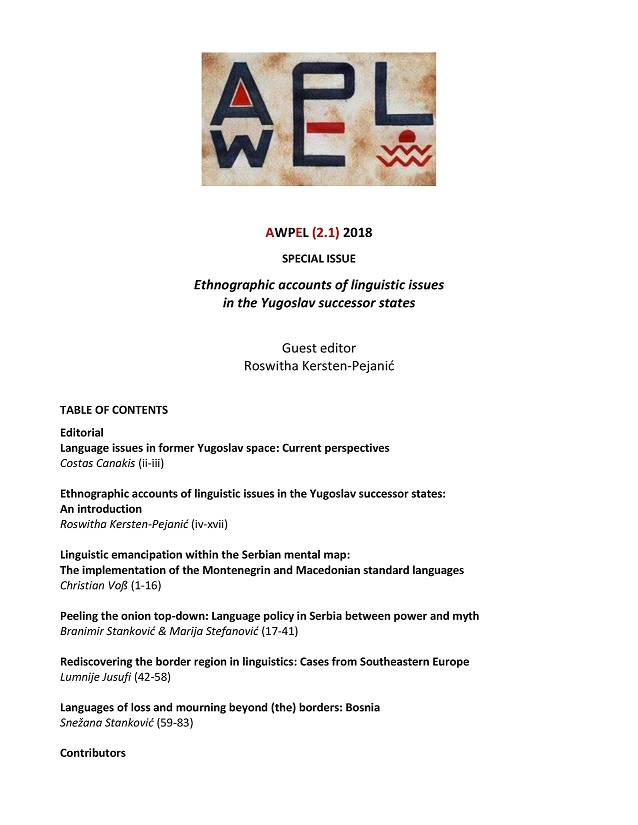Rediscovering the border region in linguistics: Cases from Southeastern Europe
Abstract
Border region research has recently made its way into various different disciplines and is becoming increasingly useful for sociolinguistics. Nevertheless, in the context of the languages represented in Southeastern European Studies, it is still rather rare today and heretofore non-existent in the Albanian context. This can be explained by the fact that the pivotal research object –state borders– as well as the languages discussed are often used as political and ideological tools. Often, the language situation of a given border region is not taken into account at all, for the sake of preserving the image of linguistic –and thereby national– unity. This paper will show the results of a study in the Albanian-Macedonian border region of Dibra/Debar, which has been divided for
roughly 100 years into two parts, situated East and West of the geopolitical border. The central question is to what extent the state border has exerted influence on local dialects, local standard languages, language behavior, and perception of language among the local population.
Article Details
- Zitationsvorschlag
-
Jussufi, L. (2019). Rediscovering the border region in linguistics: Cases from Southeastern Europe. Aegean Working Papers in Ethnographic Linguistics, 2(1), 42–58. https://doi.org/10.12681/awpel.20023
- Rubrik
- Articles

Dieses Werk steht unter der Lizenz Creative Commons Namensnennung 4.0 International.
Authors who publish with this journal agree to the following terms:
Authors retain copyright and grant the journal right of first publication with the work simultaneously licensed under a Creative Commons Attribution licence that allows others to share the work with an acknowledgement of the work's authorship and initial publication in this journal.
Authors are able to enter into separate, additional contractual arrangements for the non-exclusive distribution of the journal's published version of the work (e.g. post it to an institutional repository or publish it in a book), with an acknowledgement of its initial publication in this journal.
Authors are permitted and encouraged to post their work online (preferably in institutional repositories or on their website) prior to and during the submission process, as it can lead to productive exchanges, as well as earlier and greater citation of published work (See The Effect of Open Access).



